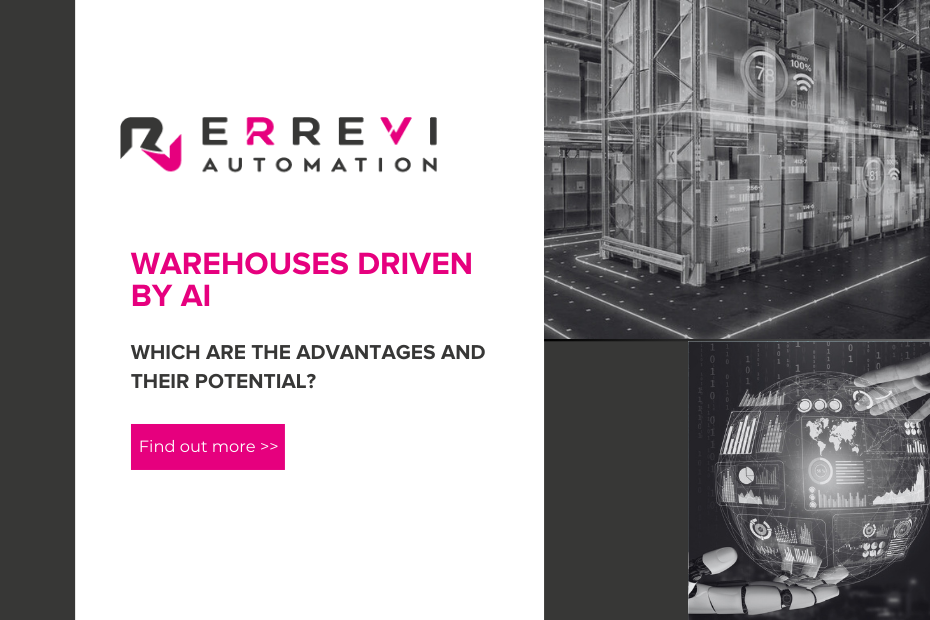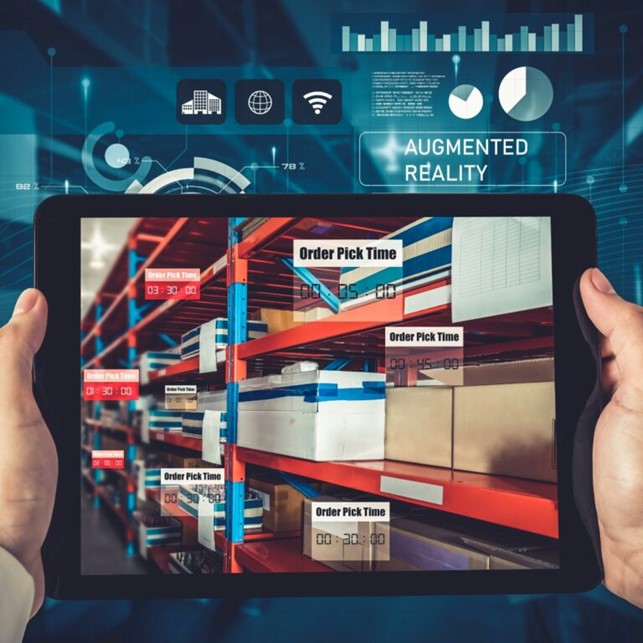Contatti:
+39 0536 284111
Indirizzo:
Via Giovanna Maria Dallari, 2 - 41049 Sassuolo (MO) Italy

In the landscape of modern industry, theArtificial Intelligence (AI) is revolutionising warehouses and the way logistics operations are managed. This technological change offers numerous advantages and opens up new possibilities for companies wishing to optimise their processes and remain competitive.
Suffice it to say that according to the GartnerBy 2027, half of all companies with warehouse operations will integrate AI-based inventory management systems. This new approach of theartificial intelligence applied to the logistics will affect stock management and worker safety.
The Material Handling Industry (MHI) annual report says that 74 per cent of supply chain leaders are targeting new technology investments and 90 per cent plan to invest more than $1 million in the coming year. This data shows us that companies are proactive in investing resources by favouring more aspects that touch the logistics benefiting from the use of the AI.
Theintelligenza artificiale (IA) is transforming the operations of warehouse e l’industrial automation solutions in different ways, improving efficiency, accuracy and flexibility. Here are some of the main impacts:
AI can analyse large amounts of historical and real-time data to predict product demand, optimise inventory levels and reduce storage costs. This makes it possible to avoid both overstocking and stock-outs.
Advanced AI algorithms can optimise shipping routes and delivery management, reducing transport time and associated costs. This is particularly useful for just-in-time logistics operations.
AI can monitor the operating condition of equipment and predict when it might fail, enabling preventive maintenance and reducing downtime to the benefit of theindustrial automation solutions.
AI helps transform raw data into useful information, supporting strategic decisions based on in-depth analysis. This includes identifying trends, optimising processes and managing human resources for better warehouse management.
AI can improve the personalisation of customer service through advanced recommendation systems and intelligent chatbots, which respond quickly to customer questions and improve the overall experience, increasing customer satisfaction.

Operations carried out through artificial intelligence work 24/7 and know no breaks. This consequently leads to higher productivity, continuous monitoring and more accurate operations. L’artificial intelligence applied to the logistics also contributes to faster and more detailed data analysis as it can process large amounts of information in a short time and also extrapolate conclusions and suggestions for optimisation. Relying on technology is also useful in detecting potential problems before they cause failures or issues and can therefore be used as a preventive measure.
The first step before embarking on AI-based activities is to conduct an analysis of the company’s capabilities and needs. Supply chain managers need to understand what the objectives are and how they can be adapted to their own logistics and its own processes of warehouse, artificial intelligence.
It is then necessary to understand what the benefits commensurate with the investment of time and resources might be and also to understand how to integrate it. To utilise the potential of the technology, it is important to know the dynamics on which it is based, and this entails a training phase that should not be underestimated for operators working in the warehouse.
Through these technologically advanced systems, it will be possible to assess performance and monitor KPIs in order to achieve the highest possible performance.


A warehouse management software (WMS) will help you improve operational cycles and fine-tune processes such as consolidation and order fulfilment. Errevi Automation designed the Agilog WCS in-house thanks to our team of engineers. Find out what it can do:
Order management: Facilitates order flow from picking to shipping.
Reassortment: Monitors and manages the replenishment of Materials efficiently.
Automated picking: Maximizes picking efficiency.
Pick & Put to Light management: Guide operators in picking and packing operations.
Packaging and labeling station management: Optimize the packaging process.
Shipment management: Coordinate shipping activities for timely delivery.
Inventory management and quality control: Ensures accurate inventory management and material control.
Failover management: Guarantees business continuity in the event of technical problems
Workload balancing: Assigns work fairly to operators.
Contact us, we will provide you with assistance on the integration of the WCS software as well as the most suitable technology for your warehouse to make it even more efficient, achieving higher performance and results thanks to the integration of theartificial intelligence at logistics.

